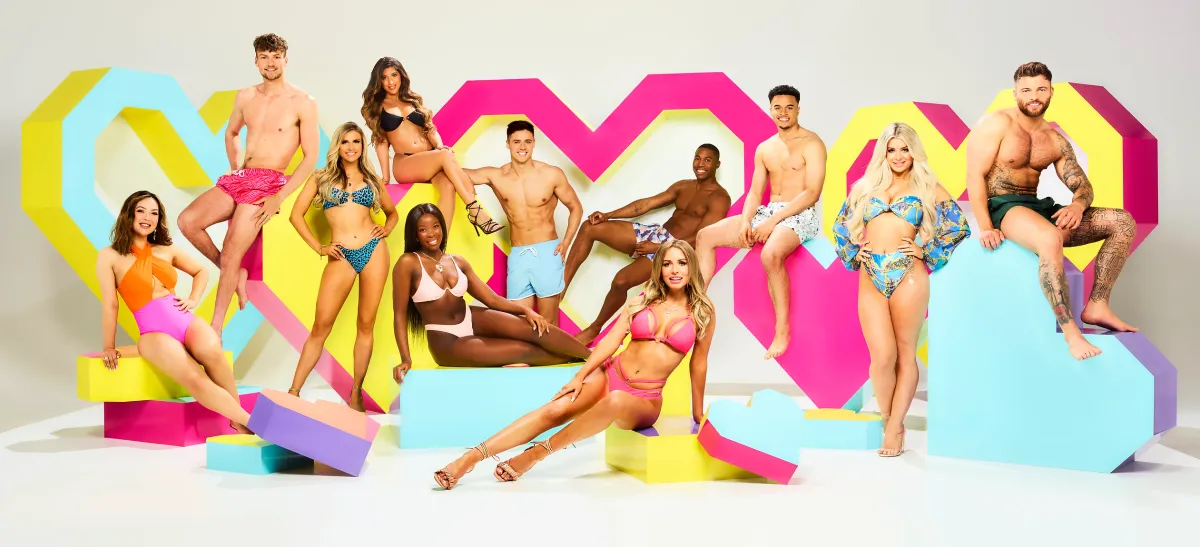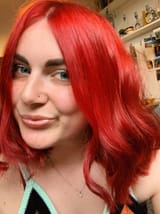I Don’t Actually Want Love Island to Become More Inclusive
Whilst the average viewer might consider that the show could benefit from improving diversity, it isn’t as high up on the list of priorities for LGBTQ+ people as one might think.

Access the Audio Read version of this article directly on Spotify for Podcasters.
This year, I decided to watch Love Island for the first time. Being both bisexual and slightly tomboyish, the show represents a slight enigma: I’ve never quite understood the motivations of the demographic it represents, which, let’s be honest, is straight, slim, and largely white. I’ve never wanted a guy who “goes gym”, and I’ve never been bothered about fake tanning.
For the most part, Love Island represents a social experiment rather than a genuine hack at representation, asking: “what will happen if we put a bunch of young singles together on an island?” The answer: Carnage – particularly after sixteen months of COVID-induced lockdowns. And whilst the average viewer might consider that the show could benefit from improving diversity, it isn’t as high up on the list of priorities for LGBTQ+ people as one might think.
Liam identifies as LGBTQ+ and doesn’t believe that LGBTQ+ inclusivity should be a priority for the show. “I completely understand that we need to be represented and that viewers might be concerned about that, but I think having an LGBTQ+ show would bring up more problems than solutions,” he says. “For the time being, I’m happy seeing straight people make a fool out of themselves.”
Damian holds a similar view: “A show of this popularity could provide a platform for the LGBTQ+ community of which we need more of. However, does every TV show, magazine article, or news story have to represent everyone, all the time? If there was more diversity across television as a whole, TV shows like Love Island would not get the attention they do”, he expresses.
Alternatively, Beth considers that bisexual representation, in particular, could do a lot of good. She says: “A bi Love Island, or a Love Bi-sland, would be hellishly chaotic but also really funny. I would 100% watch, but I do think it would have to be so carefully done to not perpetuate the idea that bisexuals are just horny and greedy.”
Beth isn’t wrong. Bisexual women, in particular, are commonly subjected to harassment and harmful stereotyping. Too often, bi women are profiled as being greedy, hypersexual and therefore “down for anything”, or masking as “straight.” On screen, the most common bisexuality tropes are the “slutty bi” and the “evil bi” (as listed by The Body Is Not an Apology), respectively representing cold-blooded, often promiscuous beings that can’t be trusted.
When they do happen, I love seeing accurate representations of bisexual people on screen, but I doubt that Love Island would succeed in widening diversity along these lines. In 2016, bisexual contestants Sophie Gradon and Katie Salmon coupled up in a Love Island first, though arguably this was causation rather than correlation. I doubt that the producers had the foresight to deliberately cast two bisexual women in the eyes of diversity, though they certainly claimed this as a win for representation.
Not everything needs an LGBTQ+ version, and Love Island represents everything that many factions of the community have, historically, stood against, bearing in mind that a significant fraction opposed same-sex marriage on the grounds of it being a heteronormative institution. These types of culture are not constructed for LGBTQ+ people, but we also commonly reject them, and Love Island is so deeply emblematic of heteronormativity that it’s difficult to see how an LGBTQ+ version would be of interest to us.
We don’t care about Love Island becoming more inclusive. We really don’t. What we do care about is for the Conservatives to ban conversion therapy, and for all LGBTQ+ people to exist, live, and love freely worldwide. The rest of it is harmless fun.





